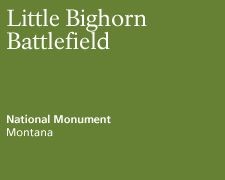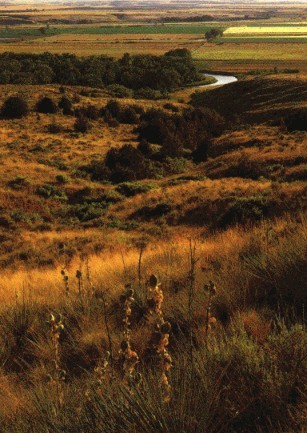The Battle of The Little Big Horn The Waterford Connection




On June 25, 1876, George Armstrong Custer and the 265 men under his command lost their lives in the Battle of Little Big Horn, often referred to as Custer's Last Stand. The Indians mutilated all bodies except those of Custer and Myles Keogh a native of Co.Carlow. Four of those killed were natives of Co. Waterford.
John D Barry was born in 1849. He was a labourer prior to getting involved in the war against the Indians. He enlisted on September 21st 1875. He was a private in I Company. He was killed with Custers column on June 25,1876 at the Little Big Horn Battlefield, Montana. He is buried at Last Stand Hill, Little Big Horn Battlefield, Montana.
Owen Boyle was born in 1843. His father was Andrew Boyle. His prior occupation was that of soldier. He enlisted on December 19, 1874, Boston, Massachusetts.He was a Private, E Company. He was killed with Custer's Column on June 25, 1876, Little Big Horn Battlefield, Montana.He is buried at Last Stand Hill, Little Big Horn Battlefield, Montana.
John Brennan was born in 1849. Prior to enlisting he was a labourer. He enlisted on September 24, 1875. He was a Private, C Company. During the Battle he was a straggler from Custers column.He was involved in a hilltop fight. It is not known how he died or where he is buried.
Edward C.Driscoll was born in 1850. Prior to enlisting he was a labourer.He enlisted on May 19, 1873. He was a Private, I Company. He was killed with Custer's Column on June 25, 1876, Little Big Horn Battlefield, Montana. He is buried on Last Stand Hill, Little Big Horn Battlefield, Montana.
See Custer link at bottom of page for full list of those killed.
The co-pilot of the Enola Gay, the B-29 that dropped the first atomic bomb was Robert Lewis who had links with the Villierstown/Aglish area. The July 24, 1995 issue of Newsweek writes: "A bright light filled the plane," wrote Lt. Col. Paul Tibbets, the pilot of the Enola Gay, the B-29 that dropped the first atomic bomb. "We turned back to look at Hiroshima. The city was hidden by that awful cloud...boiling up, mushrooming." For a moment, no one spoke. Then everyone was talking. "Look at that! Look at that! Look at that!" exclaimed the co-pilot, Robert Lewis, pounding on Tibbets's shoulder. Lewis said he could taste atomic fission; it tasted like lead. Then he turned away to write in his journal. "My God," he asked himself, "what have we done?" (special report, "Hiroshima: August 6, 1945"). On November 6, 1945, Lewis flew the Enola Gay back to the United States, arriving at the 509th's new base at Roswell Army Air Field, New Mexico, on November 8.
In 1869, General Sir Charles Gough married Harriet Anastatia de la Poer , daughter of Edmund de la Poer, MP, of Gurteen la Poer, County Waterford. The eldest son was Sir Hubert de la Power Gough (1870-1963). The family resided at Gurteen Co. Waterford. He trained at Sandhurst Military Academy. He joined the 16th Lancers. He served in the Tirah Expedition in India (1897). He fought in the Boer War.The British under General White were encircled by The Boers at Ladysmith. The first party of the British relief column was led by Major Hubert Gough. White greeted them saying, "Thank God we kept the flag flying". Here Gough had actually refused to obey orders to halt the march on Ladysmith and continued on into Ladysmith.
In Ireland, as commander of the 3rd Cavalry Brigade at the Curragh (1914), he led the Curragh Mutiny. He was totally opposed to the imposition of Home Rule on Ulster Unionists.
He was rapidly promoted in World War 1. Goughs Fifth Army failed to halt the German Operation Michael because of insufficient manpower. He was unfairly dismissed. In 1922 he was retired as a full general. He wrote Fifth Army (1931). Here he justified his actions. He was knighted in 1937.
Gough was strongly critical of The Versailles Treaty. He believed that it did not form a basis for peace. He was proven correct. In 1921, he stated- "Law and order (in Ireland) have given place to a bloody and brutal anarchy..." He was highly critical of British Army tactics. He sensed that conflicts were not solved by injustice.
Golden haired and golden hearted
I would ever have you be,
As you were when last we parted
Smiling slow and sad at me.
Oh! the fighting down of passion!
Oh! the century-seeming pain-
Parting in this off-hand fashion
In Dungarvan in the rain.
Slanting eyes of blue, unweeping
Stands my Swedish beauty where
Gusts of Irish rain are sweeping
Round the statue in the square;
Corner boys against the walling
Watch us furtively in vain,
And the Angelus is calling
Through Dungarvan in the rain.
Gales along the Commeragh Mountains,
Beating sleet on creaking signs,
Iron gutters turned to fountains,
And the windscreen laced with lines,
And the evening getting later,
And the ache - increased again,
As the distance grows the greater
From Dungarvan in the rain.
There is no one now to wonder
What eccentric sits in state
While the beech trees rock and thunder
Round his gate-lodge and his gate.
Gone - the ornamental plaster,
Gone - the overgrown demesne
And the car goes fast, and faster,
From Dungarvan in the rain.
Had I kissed and drawn you to me
Had you yielded warm for cold,
What a power had pounded through me
As I stroked your streaming gold!
You were right to keep us parted:
Bound and parted we remain,
Aching, if unbroken hearted -
Oh! Dungarvan in the rain!